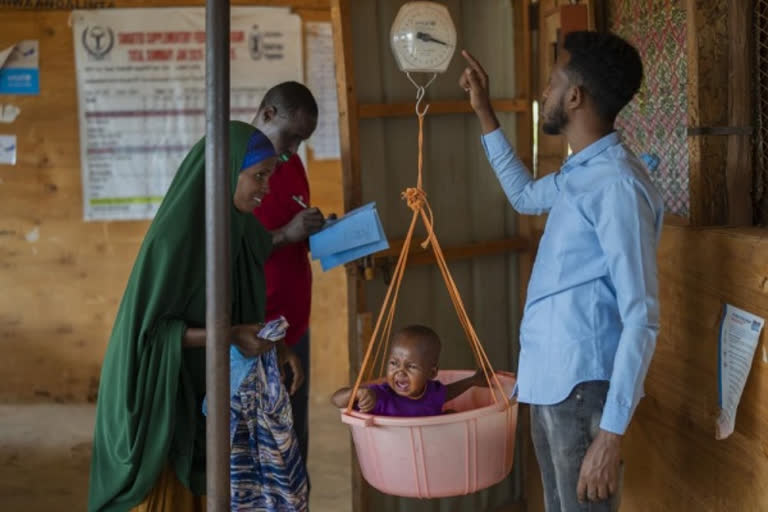Sharm El-Sheikh (Egypt):In conflict-ravaged nations like Yemen and Somalia, devastating floods and droughts kill hundreds of people and uproot tens of thousands from their homes. These countries and many others in the Middle East and Africa have been plunged into turmoil and wars for several years. Now climate change is an added disaster for those already struggling for survival.
The United Nations climate conference, which wrapped up last weekend in Egypt, established a new fund to help poor, vulnerable countries hit hard by climate change. Countries like Yemen and Somalia are among the world's poorest and more vulnerable to climate change impacts as they are less able to adapt to weather extremes.
But they have little or no access to climate financing. Conflict-hit countries are unlikely to receive funds because they lack stable governments, said Nisreen el-Saim, chair of the UN Secretary-General Youth Advisory Group. They don't have institutions in order to have climate finance, she said. You have to have strong institutions, which don't exist in many countries.
Robert Mardini, the director general of the International Committee for the Red Cross, said that close to zero amount of climate finance is reaching conflict-affected nations because decision-makers who decide to allocate those funds consider that it is too risky to invest there. He warned that the worst is yet to come for Yemenis and Somalis amid worsening food shortages.
Those decision-makers need to reconsider the risk appetite because there are also big risks in not investing in these countries and huge (human) costs that should be avoided, he said. In Yemen, a third of the population 19 million people are not able to find sufficient food in 2022, up from 15 million last year. Those include 161,000 living in famine-like conditions, according to the UN food agency.
Children and women are the most affected, with 1.3 million pregnant and breastfeeding women and 2.2 million children under 5 years acutely malnourished. Of those, 538,000 children suffer from severe acute malnutrition, said the UN Office for the Coordination of Humanitarian Affairs.
Yemen has endured a brutal civil war since 2014, when the Iranian-backed Houthi rebels seized the capital, Sanaa, forcing the government into exile. A Saudi-led coalition entered the war in early 2015 to try restore the internationally recognised government to power. The conflict devastated the country, created one of the world's worst humanitarian crises and over the years, turned into a regional proxy war between Saudi Arabia and Iran.
More than 150,000 people have been killed, including over 14,500 civilians. The country has also suffered from droughts, soil erosion and yet worsening floods every year. According to the UN agriculture agency, this year's rainfall was 45 per cent higher compared to 2021. At least 72 people were killed in flooding this year, and some 74,000 families in 19 of the country's 22 provinces were affected, with those living in displacement camps bearing the brunt of the deluge.
There are 4.3 million people displaced, most made homeless by the raging conflict, according to UN figures. To meet the increasing humanitarian needs, the World Food Programme says it needs more than USD 1 billion until March 2023. The situation is worse in Somalia. The country is inching towards famine, the UN says.
